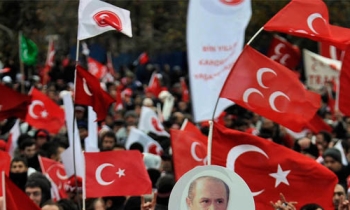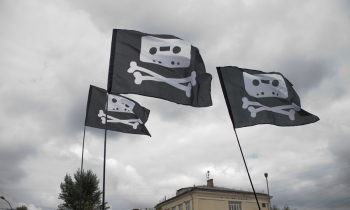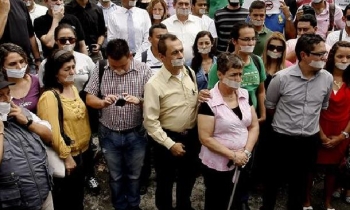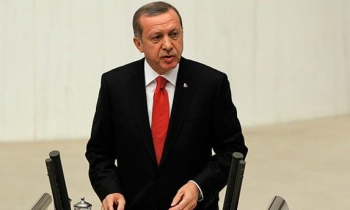MILWAUKEE - A college newspaper that printed a photo essay depicting an editor's sexual fantasy of being raped created such a backlash on campus that a task force is being formed to focus on the problem of violence against women.
Some women's advocates have called for harsh penalties, such as tossing the UWM Post out of its free office space at the University of Wisconsin-Milwaukee campus, because of the photo essay that ran Nov. 23 and appeared to depict then-photo editor Sara DeKeuster being attacked in a parking garage.
But UWM Provost Rita Cheng said that while the administration disapproves of the decision to run the essay, it can't take action against the Post because the newspaper receives no university funding, only the free office.
"They see themselves as an independent newspaper, and we treat them as such," Cheng said. "This is a very sensitive issue of independence and freedom of speech."
Still, Cheng said she is using the incident to form a task force that will examine the climate for women on campus - something that has been discussed for several years but never done.
"Particularly with this controversy, there was concern about whether women feel comfortable," Cheng said.
The staged scenes in the photo essay, titled "Bedtime Stories," show DeKeuster slammed against a car by a man and forced into what captions call "unexpected intercourse," leading to her feeling "guilty and rejoiced."
A note to readers by graduate student Diego Costa, the Post's arts and entertainment editor, said he and DeKeuster conceptualized the essay "in order to explore the age-old repressed female sexuality in its attempt to strip itself of social and feminist constraints."
Costa, who took the photos, said in a follow-up article that the work was an "art piece" expressing DeKeuster's "guilt-ridden sexual desire of getting raped."
After it appeared, students flooded the newspaper with angry letters and some urged businesses to pull ads that fund the Post. Critics said the photo essay could be viewed as an endorsement of rape, and that as a work of art, it didn't belong in a newspaper.
"All my friends were absolutely appalled," said senior Amy Phipps, a member of the College Feminists. "A lot of times when women are raped or harassed, people use the defense that she wanted it. This piece can be seen as validation of that and as a mockery of women who have been assaulted."
Catherine Seasholes, director of the campus Women's Resource Center, said the center, campus police and the university health center fielded questions from offended or frightened students.
"The concerns were, was this something that actually happened? Were the images real? Was this a parking garage on campus?" Seasholes said. "Apparently not. But a lot of people still felt like it reflected a lack of consciousness and sensitivity that a substantial number of women have been sexually assaulted."
DeKeuster, who graduated in December with a degree in fine art photography, said the essay was done originally for a class, and she viewed it as a way of "liberating my sexuality." She said Costa took the photos and wrote the captions.
Costa said he decided that running the essay could set the Post apart from other newspapers. He and DeKeuster saw it as a way to use "pages of a newspaper for questioning the establishment," he said.
Other editors supported the decision, even though some didn't like the essay, said Matt Bellehumeur, the Post's editor in chief.
After it came out, photocopies of the essay with the words "Post Advocates Rape" written on them were posted around the student union, and stickers saying "How to Rape" were stuck on stacks of the newspaper.
The followup story Dec. 7 only fueled the criticism, as Costa dismissed the angry reaction as "typical of people whose understanding of art is so superficial."
Post editors then met with Seasholes, leaders of the Student Association and university officials and told them the Post planned to donate $800 to a shelter for battered women, Bellehumeur said.
He said if he had to make the decision over again, he would not publish the essay, and he won't run two others by DeKeuster that had been due to appear. He noted the newspaper has run many letters from students criticizing the essay, as well as a full-page ad, at half price, by the Student Association with statistics on rape.
Cheng said the meeting's results and creation of the task force were enough to satisfy the administration.









